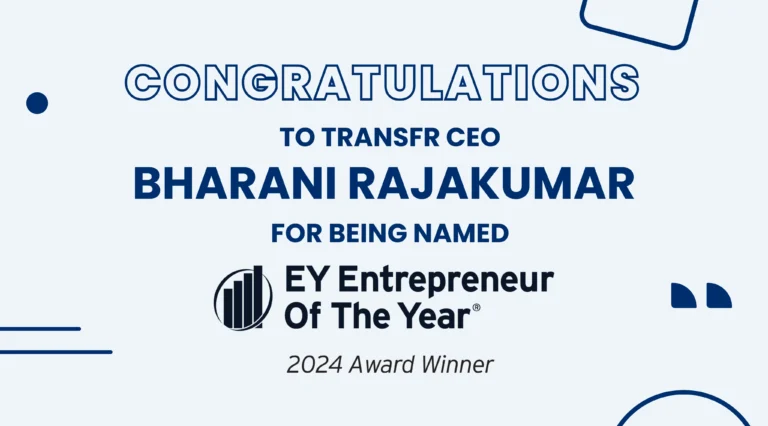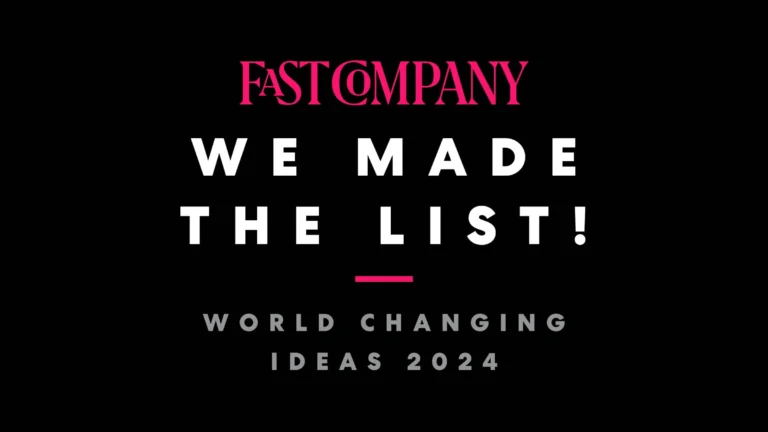South by Southwest Education (SXSW EDU) is one of the biggest tech and education events in the world boasting a diverse lineup of speakers, discussions, and even film screenings aimed at fostering learning and discovery for education stakeholders. Topic tracks for 2023 include accessibility and inclusion, emerging tech, equity and justice, and many other focus areas that are top of mind for educators and policymakers.
Also on the program this year: Transfr! CEO Bharani Rajakumar was on site for Transfr’s panel Will the Metaverse Disrupt Equity Gaps? We had a chance to talk to other leaders in the training and workforce development worlds about the ways in which VR can broaden opportunities for everyone and help people from pools of undiscovered talent get into well-paying jobs in high-demand industries.
“We’re focused on career exploration,” Bharani explained on stage with panel members from River Parishes Community College and Morehouse College/Metaverse United LLC. “People can put on the headset and experience a variety of occupations and truly see themselves in those roles. We’re trying to help people from pools of undiscovered talent who’ve been operating outside of the educational system.”
Even when we weren’t on stage, the Transfr buzz was out there. During her session “Investor Talk: Skills, Employability & Pathways,” Kate Ballinger of Firework Ventures had this to say: “What Transfr does is use VR technology to help students at scale, to help high school students envision what a certain career could look like, to help college students train for these jobs and get into a career with upward mobility. When it comes to emerging technologies like VR and AI, we need to look for places where they have unique applications.”
But it’s not all about us! Three vital trends we saw on the floor at SXSW EDU include emerging technologies and innovations, serving diverse learners, and building the workforce of tomorrow.
Let’s jump into these dynamic topics!
Empowering educators and learners with AI
Using AI in education is a topic that’s very near and dear to our hearts here at Transfr. Our AI coach Simon has helped countless students progress through a wide array of sims. Having an AI coach empowers students and educators in a number of important ways: The AI coach never tires, misses details, or gets upset with students.
We’ve heard from instructors in the field that students with behavioral issues, when they realized that they can’t get a reaction from the AI instructor, actually change their behavior and focus on the simulation, often to surprising and positive results!
Having this extra set of AI eyes on students doing individual VR practice is a huge benefit for instructors: Instead of splitting focus between a class full of students, the instructor can trust the AI coach to give each student customized feedback, based on their unique performance in the simulations.
Other innovators are also seeking to use AI in teaching and learning as well. In the panel “Myth Busting: AI’s Role in Teaching & Learning,” the panel discussed using AI to help reduce the administrative load on busy instructors. Assistance from AI systems can be used to deliver aggregated insights on student performance — which is something we also do with our Transfr Dashboard to give users a detailed look at how their trainees are progressing through the sims.
Driving increased equity in education with technology
When you do a panel called “Will the Metaverse Disrupt Equity Gaps,” you know equality and improving outcomes is top of mind. VR learning offers unique opportunities for learners to practice new skills in a safe environment, free from the prying eyes of their peers. This can open the door for students to pursue careers they might otherwise have avoided. It also lets them safely make mistakes without worrying about the reactions of other students.
The panel “Serving Adult Learners: An Equity Imperative” focused on how colleges are working to reorient themselves to serve adult learners with more diversity across age, race, income, and professions. At Transfr, we know that one size doesn’t fit every learner when it comes to building the skills that will take somewhere from where they are — just entering college as a youth or doing a late-in-life career change — into a well-paying career in a high-growth industry.
Integrating VR career exploration into job search efforts at workforce boards and colleges can help adults find new career paths they might not otherwise have considered. VR training can help learners progress on those pathways more quickly and efficiently than they might otherwise!
Building the workforce of tomorrow
Building the workforce of tomorrow is what Transfr is all about, so it was awesome to see so many panels tackling this broad, vital topic. In “The Power of Together: Solving the Skills Gap,” a panel of different DC-area colleges talked about the power of collaboration — since no one school can be all things to all its students. This is part of our ethos of cooperation here at Transfr, as we spend a lot of time building bridges between different organizations to put VR technology in the hands of everyone who can use it, then connect learners with job opportunities at local employers who need their help!
We already mentioned Kate Ballinger’s shoutout during “Investor Talk: Skills, Employability & Pathways,” but it’s heartening to see people highlighting career pathways and skills, vs solely focusing on four-year colleges (which we know not everyone will go to). This point was driven home in “How to Invest in Tomorrow’s Labor Market,” where panelists discussed how the present labor market had called into question the value of a traditional college degree. Would-be employers need to open their eyes to the potential that late-in-life career switchers and even previously-incarcerated people can bring to their operations.
A bold new world of tech and education
Every year, the world of education changes in unexpected and unpredictable ways. However, what doesn’t change is the commitment of educators of all kinds to help their students be their best and accomplish great things. We constantly see a world that fears technological integration but we also have to consider how technology has the capability to help, enable, and advocate for human learning and the future of work. Technology will play a big part of the formula for success that students, educators, and administrators need to grapple with in order to help every student get on their personal pathway to prosperity and upward mobility.
Having had an amazing time at SXSW EDU, we’re filled with hope for the future and all the potential that’s out there waiting to be realized!
Interested in seeing if Transfr is right for your organization? Schedule your demo today!





